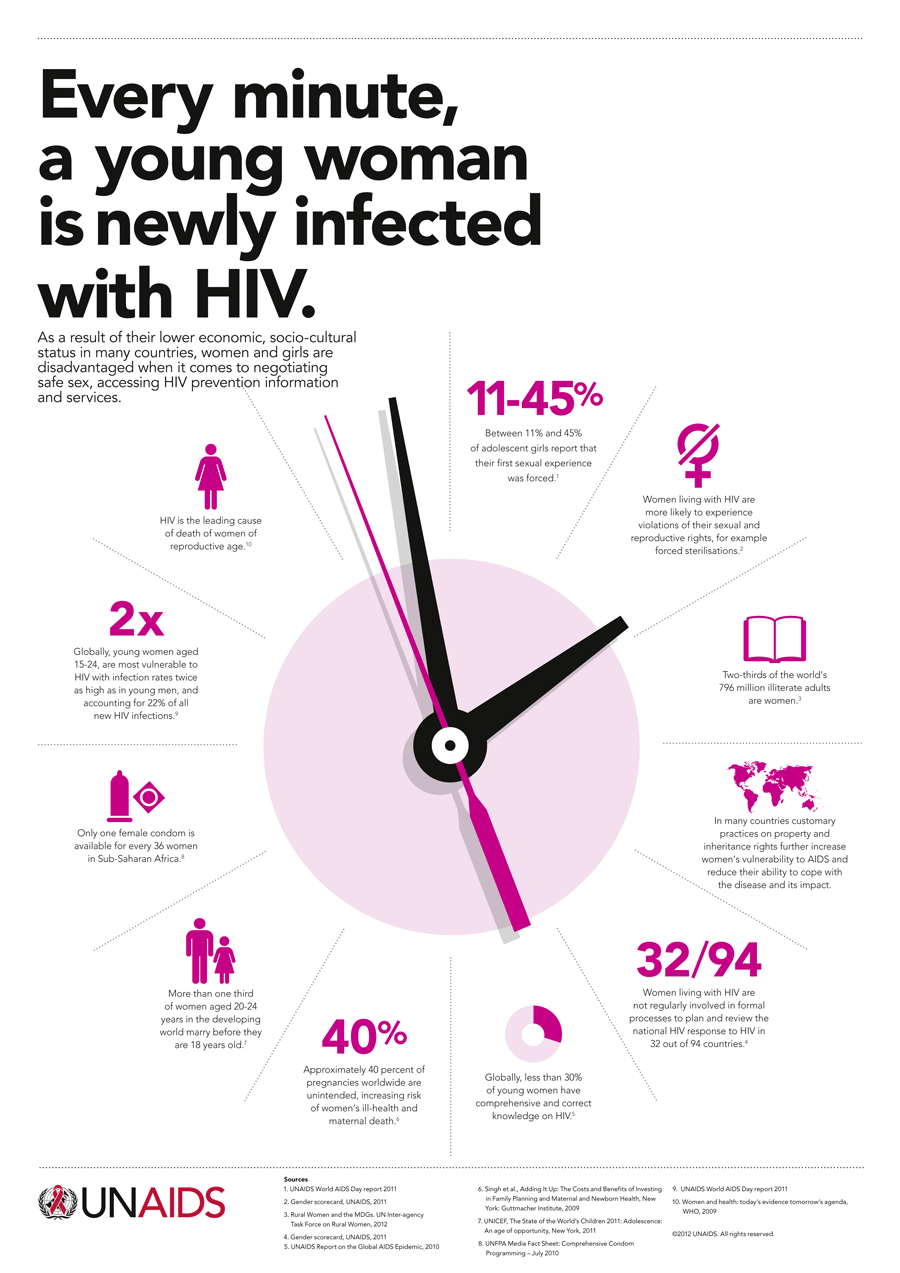Studies have shown that intimate partner violence can increase the risk of HIV infection by around 50% and that one in three women experience violence by their intimate partner during their lifetime. There is also evidence that violence, or the fear of violence undermines access to treatment, care and support services for women living with HIV.
In efforts to address the complex linkages between violence and HIV, in a statement, the United Nations Secretary-General Ban Ki-moon called on the world to do more, “We must take action to end violence against women and girls and ensure that they have the sexual and reproductive health and rights that they deserve. Violence has a drastic impact on the health of women and children and is inextricably linked to a higher prevalence of HIV. That is why I have made ending violence against women and girls a top priority for the United Nations.”
The Secretary-General’s call was amplified at the high-level panel Linking HIV, gender equality and sexual and reproductive health and rights as part of the Every Women Every Child initiative, and the post-2015 social justice agenda organized by UNAIDS during the 58th Commission on the Status of Women held in New York. “Not only is violence against women an extreme human rights violation, it also makes women more vulnerable to HIV infection,” said Michel Sidibé, Executive Director of UNAIDS. “Post-2015 is the opportunity to ensure all women and girls reach their full potential, without the threat of violence, risk of HIV infection and violation of their sexual and reproductive rights.”
The event, chaired jointly by Mr Sidibé and the Executive Director of UN Women Phumzile Mlambo-Ngcuka, encouraged dialogue around the critical need for women-centred efforts to end the AIDS epidemic; the advancement of sexual and reproductive health and rights for women; gender equality and women’s empowerment; and zero tolerance for gender-based violence. “The single most important strategy in dealing with HIV is empowering women and protecting their rights,” said Ms Mlambo-Ngcuka.
Panellists included HRH the Crown Princess Mary of Denmark, Ministers of Gender Equality from Ghana, Malawi, Brazil and a representative for young women living with and affected by HIV from Algeria. "In my region, discrimination is a societal phenomenon. We must continue to act to eliminate discrimination—it’s the key to the end of the AIDS epidemic,” said Fatima Bendida, El Hayet Network of People Living with HIV, Algeria.
The panellists also elaborated on the importance of addressing stigma and discrimination. They stressed the need to end violence against women for their own health, as well as to prevent new HIV infections. They also emphasized the particular focus needed on young women and girls to ensure they have access to comprehensive sexuality education that all women living with HIV have access to treatment, care and support, within a rights-based and social justice framework.
“It is essential that we achieve universal access to integrated sexual and reproductive health information, education and services, fully addressing HIV, based on gender equality and with zero-tolerance for gender-based violence,” said HRH Crown Princess Mary of Denmark, Patron of UNFPA and Member of the High Level Task Force for the International Conference on Population and Development
The panellists also highlighted poverty as a driver of HIV and sexual and reproductive ill-health and recognised equity in access to services as a key focus for development for women. They also emphasized the continued need to secure funding for the most marginalized in societies.
Ms Nancy Mahon, Executive Director of the M·A·C AIDS Fund moderated the event at which Mr Sidibé launched a UNAIDS Advocacy Brief: Unite with women unite against violence and HIV. The brief outlines five core reasons to prevent violence against women; violence against women is a human rights violation; women who experience violence are more likely to acquire HIV; women living with HIV are more likely to be subjected to violence; women most vulnerable to HIV are also most vulnerable to violence; and that violence undermines the HIV response by creating a barrier to accessing services.
The discussions at the panel event were an important milestone in the ongoing post-2015 debate, underlining the central role women living with HIV need to play in the discussions around the post-2015 debate.



